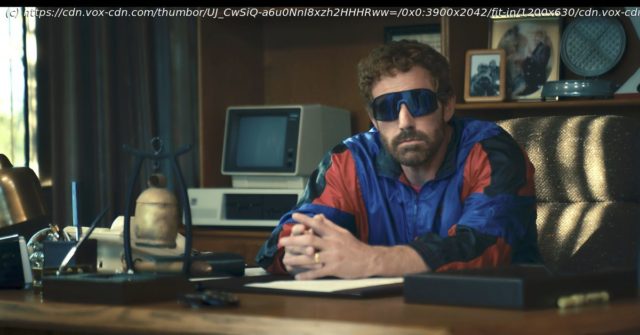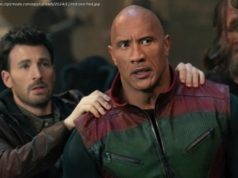With Air headed to Amazon Prime Video soon, and Adam Sandler’s Hustle and Uncut Gems dominating Netflix charts, the best sports movies of the 2020s are about redefining the genre.
Toward the top of Ben Affleck’s sneaker procedural Air, the bigwigs of Nike’s basketball division sit around a conference room table debating the merits of players in the 1984 NBA draft. They have a $250,000 budget to split between three prospects, which means they’ll inevitably be outbid by the giants at Converse and Adidas for the right to sponsor the draft’s top picks. So they look further down the draft board: The fifth pick, Charles Barkley, is mired in “clubhouse issues,” and “nobody is going to want to see him on TV”; the 16th pick, John Stockton, played his college ball at Gonzaga, and “no one even knows where that is”; Melvin Turpin, drafted sixth, seems like the safest bet — he apparently has “great vision,” though Sonny Vaccaro (Matt Damon) notes that he only averages one assist per game. In 2023, of course, we know that Barkley and Stockton are Hall of Famers, Gonzaga is a perennial powerhouse, and Turpin never did much of anything in the league.
These kinds of nods to in-the-know viewers, hidden throughout Air by rookie screenwriter Alex Convery, are nothing new. Since at least 1980, when Kareem Abdul-Jabbar complained about dragging Walton and Laimbeer down the court for 48 minutes in Airplane!, knowing nods to a savvy, basketball-watching audience have been embedded in films that touch on the sport. But a new generation of basketball movie has reflected a new generation of basketball fan, one who’s as versed in collective bargaining agreements, overseas scouting, sports gambling, and shoe deals as they are the on-court product. In a world where every move an NBA GM makes spawns a hundred podcast episodes, Hollywood has adapted, delivering a spate of films that dig deep into aspects of the game that seemed unimaginable in the days of Hoosiers.
In fits and starts, this revolution has happened in sports movies before. Bennett Miller’s Moneyball managed to film the seemingly unfilmable story of a renegade GM and a Yale economist using sabermetrics to find undervalued baseball players. Ivan Reitman’s Draft Day dropped viewers into the war room of the Cleveland Browns during the NFL draft. Even Jerry Maguire, in its own ’90s dramedy way, saw one-time journalist Cameron Crowe excavating some of the esoterica of sports agencies. For fans of those sports, it’s natural to see themselves in these auxiliary characters — think of the overwhelming popularity of fantasy football and baseball, both of which dwarf the audience for NBA fantasy leagues. But basketball culture is driven primarily by Black youth culture, and the inevitable tension between the game and the business interests surrounding it is just now being explored in depth on screen.
High Flying Bird makes that tension its principal obsession. Steven Soderbergh’s 2019 drama is set during an NBA lockout, with the league’s owners and players at an impasse over their new collective bargaining agreement. The film follows the maneuvers of super-agent Ray Burke (an excellent André Holland) as he negotiates with seemingly everyone in the basketball universe, toward ends that aren’t always clear to anyone but him. It’s a dense, cerebral movie that throws its audience in with the sharks and asks them to swim, but it’s devastatingly insightful about the symbiosis of basketball and commerce.






